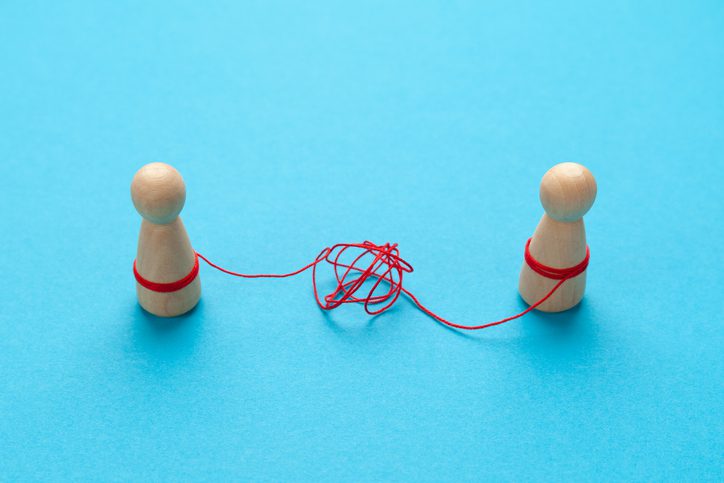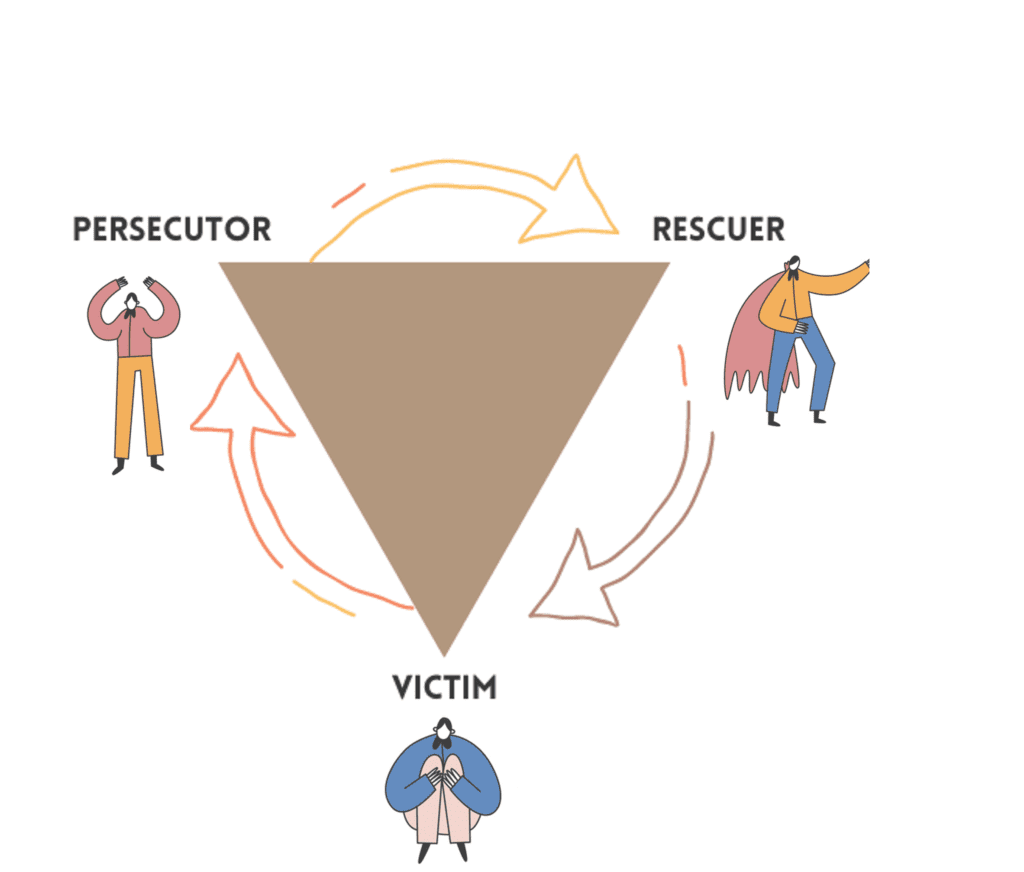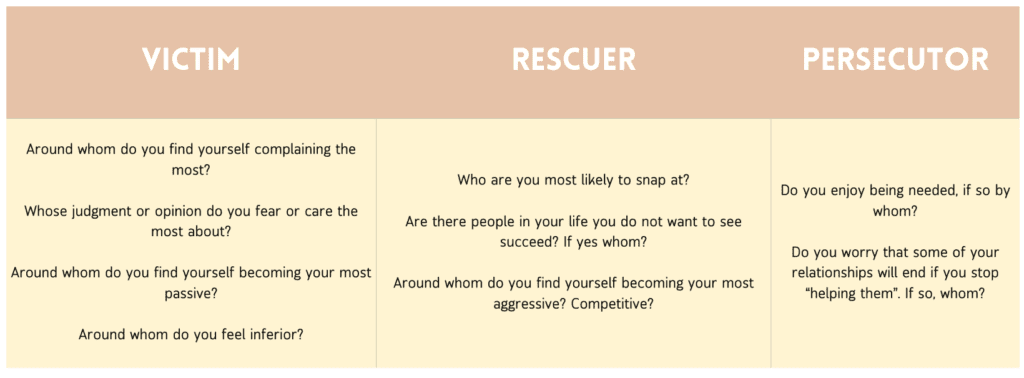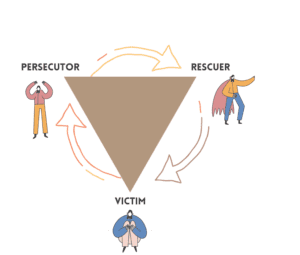An essential tool to improve difficult relationships
We are drawn to drama. Whether it’s by watching reality TV shows, waiting until the last minute to finish a work assignment or eavesdropping on people arguing on the tube. And although an hour of watching trash TV every week won’t harm you, keeping engaging in toxic relationships over and over again is likely to have a considerable impact on your well-being and mental health.

Studies have shown that drama has a direct influence on an individual’s weight, sleep patterns, stress levels, depression, and even lifespan. Of course, removing drama from your life is unrealistic. Life will throw things at us and it’s important to face the music when necessary. But what we will talk about here is unnecessary drama, the one that can be avoided.
From an evolutionary point of view, humans are drawn to look for danger to survive it. 10,000 years ago, when the caveman or woman left their shelter to go hunting, they focused all their attention on looking for other predators and potential dangers. But then we built houses, and cars, invented central heating and supermarkets, and suddenly the need to look for danger every hour of the day was gone. But the instinctive urge remained, so what did we do instead? We replaced with the search for drama
Drama causes us to secrete endorphins which are the pain-suppressing and pleasure-inducing molecules. These are not much different from the effect of some drug addictions. So we’re driven to find drama even when it doesn’t exist.
In this article I will give you an exceptional tool that will change the way you see relationships forever. It will allow you to:
1/ understand how to spot drama and toxic interpersonal relationships
2/ change the dynamic, empower yourself and create better more balanced relationships
How to spot drama (the drama triangle)
The drama triangle is a model that allows an understanding of the interplay between responsibility and power in relationships

three things to remember about the drama triangle:
- We all have a favourite point of entry, but once we enter the drama triangle, we will automatically rotate to each position at some point or another. This could happen within a conversation or over a lifetime.
- All three positions are a type of victimhood. None of them is taking responsibility for how they feel. They either blame the other person or use them to feel validated
- All three are ‘roles’ and none may be true to who we really are
The victim’s mindset:
The victim’s mindset is “poor me”, they tend to feel hopeless and powerless. Victims will unconsciously seek out the company of persecutors and rescuers, in order to keep their victim status.
The victim will, at some point in the relationship, move on to the persecutor position. They will do so by guilting the other person into helping them: “if you’d care about me, you’d help me”. Or by intentionally staying down to maintain the relationship. However, because persecutors and rescuers are dependent on the victim to validate their sense of self-worth, the victim will also act as a rescuer to both.
The Rescuer’s mindset:
The rescuer’s mindset is “let me help out”, they’re the ones who want to save the day. Because they need the victim to stay in their one-down position to validate their sense of worth they will never fully help out. To understand the difference between recusing and helping, think of the adage, “give a man a fish you will feed him for a day, teach him how to fish, and you will feed him for life”. The former is rescuing, and the later is helping.
By constantly trying to “help,” the rescuer can easily move into the victim position by becoming a people pleaser. Equally, by constantly trying to help the victim but getting nowhere, the rescuer will inevitably get frustrated. This frustration will often lead the rescuer to “abandon” the victim for a while as a punishment. Which will make them move into the persecutor’s corner and then quickly into the victim’s corner again. As the rescuer is often the victim of their own sense of duty.
The Persecutor mindset:
Their mindset is “it’s the world’s fault”. They will tend to blame others for their discomfort and will need people around them to feel inferior to validate their sense of self-worth.
This is the one people tend to fail to see in themselves. However, as you’ve already understood from the other two descriptions above, you cannot enter the drama triangle without going into the persecutor’s corner as some point or another.
How to opt out of drama
1/ Awareness:
Recognising the drama triangle allows you to avoid getting sucked in. This way, you get to opt out before any damage is done


2/ Shift the relationship:
Firstly, you must ask yourself if you want to keep these people in your life. It’s fine not to and sometimes walking away is inevitable. But if you do want to salvage these relationships, you need to shift them.
Ask yourself the following:
- What would an equal and respectful relationship look like with them?
- What do you each need to start doing to take responsibility for yourselves?
3/ Calmly voice your authentic feelings
You can never go wrong with an honest, open, and blame-free conversation with someone. Yes, saying the “awkward thing” is, as it were, awkward. But calmly voicing your authentic feelings will allow you to strengthen your sense of self-respect.
You might not get to a resolution but it will at least give you the ability to move on, armed with a feeling of empowerment and a stronger sense of self-worth.
Where on the drama triangle do you most often find yourself when relating to others? You will find that it will change by context (family, colleagues, partner etc..).
The drama triangle is an incredibly powerful tool once you understand how it works. Not only will it allow you to spot the relationships in your life that need shifting, it can also enable you to consciously move from your victim/persecutor/rescuer position and regain control.
I invite you to set an intention for the next week, and bring awareness to the instances where you find yourself on the drama triangle. What lets you know you’re there? Use the tools you have learned here to step out of it and notice, how does this make you feel?







